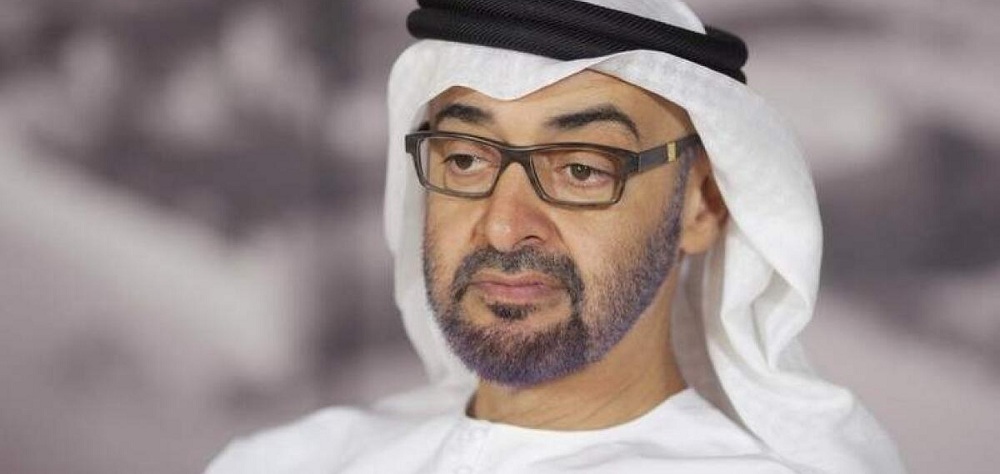Alwaght- When in October 2021, the Turkish mafia leader made revelations against the Turkish leaders, the UAE vowed to expel him if his remarks were posted online. Abu Dhabi supported Ankara as part of the normalization of relations, but the Emirati leaders have adopted a dual standard in dealing with the Iranian dissidents on their soil and are trying to keep the unrest in Iran ablaze by supporting them politically.
The Emirati government has embarked on normalization with Turkey in recent months after years of tensions and is cracking down on Ankara dissidents for Erdogan appeasement. When Sedat Peker, who is recognized as Turkey's mafia boss, revealed corruption of the Turkish leaders last year, the UAE threatened him with expulsion. This comes as the current Interpol chief has Emirati citizenship and recently met with the Turkish Interior Minister Suleyman Soylu. According to a journalist, the UAE has not decided to what country it would hand over Peker in case of his expulsion, but this threat comes in the shadow of improving relations with Turkey and exchange of meetings between officials of the two countries after a long term of chill hitting their ties for Ankara's support to the Muslim Brotherhood— an Islamist group the UAE blacklisted as a terrorist entity. Although Turkey-UAE relations saw tense days in the past years, Erdogan has been working for their improvement. In mid-February, he visited Abu Dhabi and in his address described as "historic" for regional peace the Turkish-Emirati relations. This is why Abu Dhabi rulers are trying not to allow Erdogan's opponents to carry out their political activities in the UAE as this can fray their ties afresh.
UAE's different approach in dealing with the Turkey
Due to their rapprochement with Turkey, the UAE restricts Turkish dissidents' activities on its soil for the fear of damage to ties with Turkey. However, they show a contradictory approach to Iran. Over the last year, the Arab monarchy repeatedly announced that it intends to de-escalate tensions with Iran and resume diplomatic relations, but at the same time, it continued to take measures against Iranian territorial integrity. In recent weeks, it has been said that the UAE envoy will soon come to Iran to upgrade the political representation from chargé d'affaires to ambassador, but despite Tehran's good intentions to develop relations, Abu Dhabi officials have not taken any action to defuse tensions.
In recent years, in alignment with the American and Saudi policies, the UAE has repeatedly supported sporadic riots in Iran by interfering in Iranian internal affairs and tried to advance its plans against Iran's territorial integrity through the opposition groups.
The UAE hosts tens of thousands of Iranian expats, some of whom acting against the Islamic Republic. But it has not imposed any restrictions on them and even supported them and provided them with facilities for online incitement against the Iranian government. Although like Saudi Arabia has not openly supported Iran riots, the UAE has always backed Riyadh policies behind the scenes. On the strength of such media as the London-based Iran International news network, the Saudis have always incited sedition and riots in Iran but the UAE which has no powerful media outlets backs the Saudi policy in opposition to its stated intention for rapprochement with Iran. The unconditional obedience of Saudi Arabia by the UAE was clear in the 2015 political crisis between Riyadh and Tehran. Abu Dhabi recalled its ambassador from Iran following a similar move by Riyadh.
The UAE even makes territorial claims against Iran, and regularly argues that the three Persian Gulf islands of Abu Musa, Greater Tunb, and Lesser Tunb are Emirati territories. Such claims are never entertained by Iran and only escalate the tensions between the two sides every now and then. The UAE even went beyond and normalized ties with the Israeli regime and opened the Persian Gulf doors to it for Tel Aviv to implement its anti-Iranian schemes from a closer distance. Thousands of Israelis settled in the UAE and southern Yemeni regions to closely monitor Iran's moves. These steps follow Abu Dhabi's readiness for a detente with Tehran. Israeli creeping to the Iranian borders not only does not bring peace but also ignites tensions and the final victims would be the Arab monarchies that support Israeli interests. Additionally, with the contradictory stances the Emirati officials are making, it is hard to count on credibility of the Emirati officials' talk of intention for de-escalation with Iran.



























